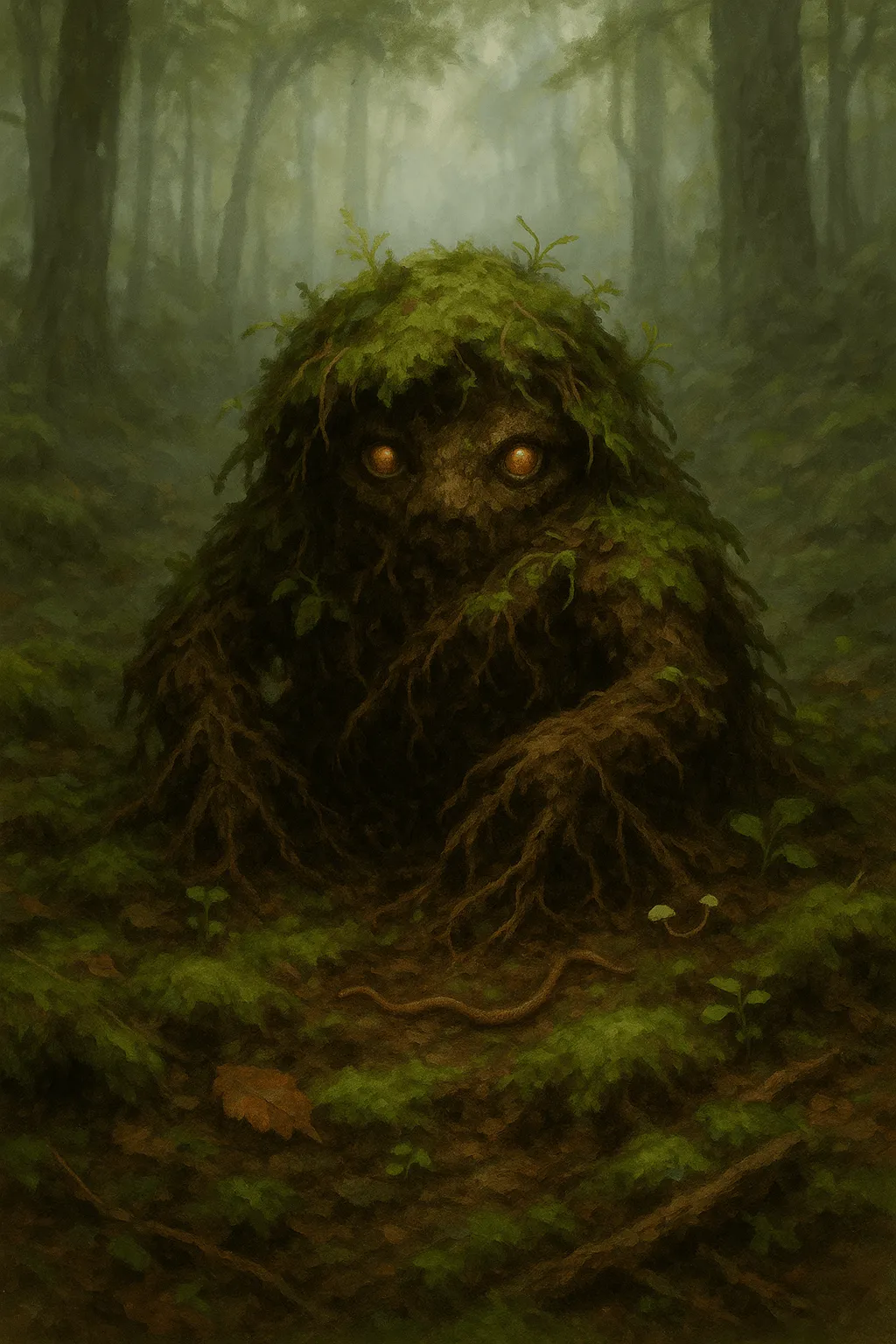
The forest floor has memory. Sometimes, it rises to look back.
Among the most unassuming creatures to stir beneath leaf and loam is the one some call Peek Soil. It has no proper name in arcane texts, no formal record in binding grimoires. Instead, it appears in the quiet margins of traveler's journals and the hushed accounts of forest dwellers—something glimpsed, perhaps, but rarely confirmed. A shiver of moss. A root that blinked. The soft compression of soil that rearranged itself when no one was near.
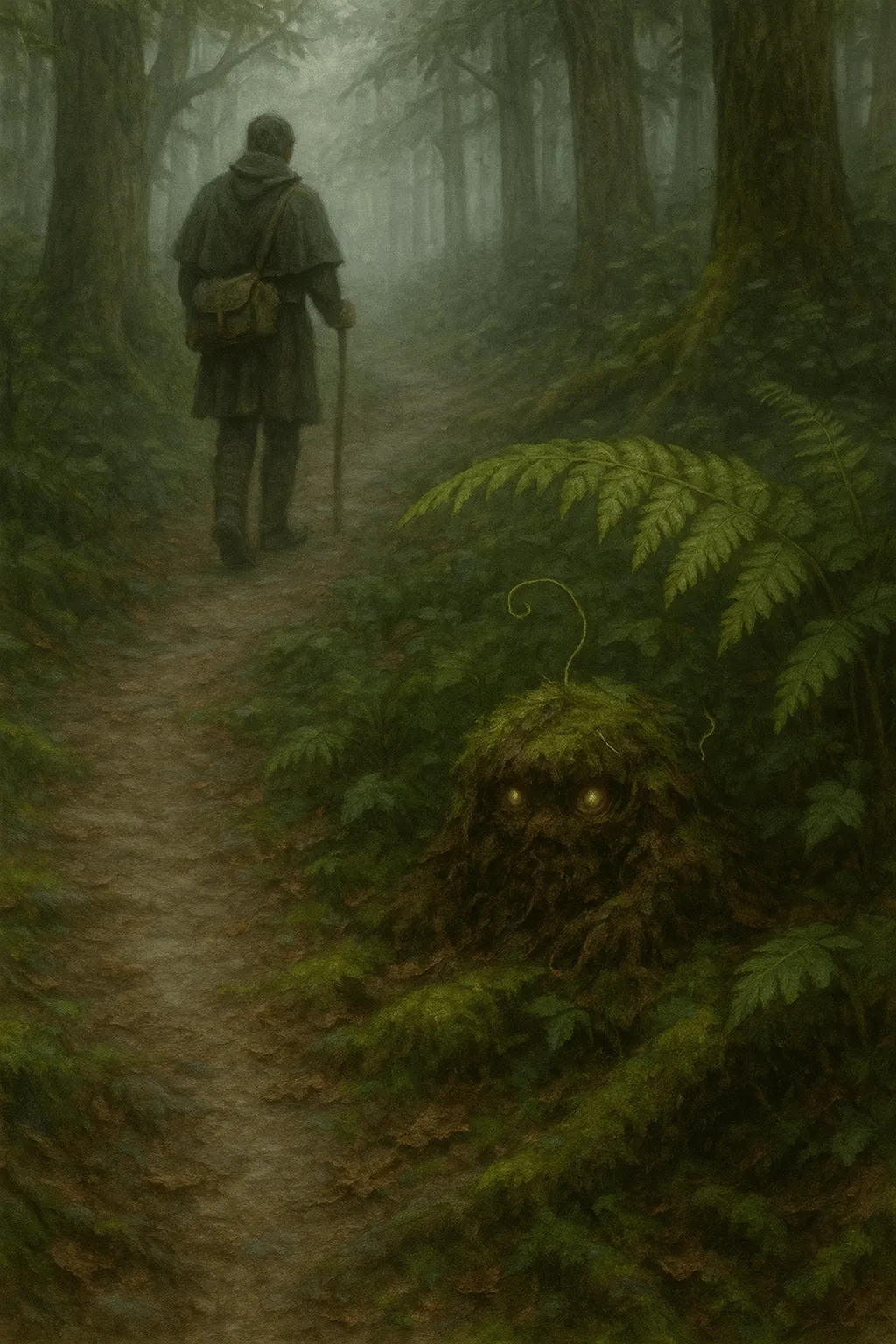 Peek Soil is a small elemental, barely larger than a badger, and composed not of rock or crystal, but of rich organic matter: damp earth, tangled roots, fallen leaves, and the subtle weave of fungal threads. Its body is loose and shapeless until it moves, at which point its presence becomes uncomfortably clear. It is not made for combat, nor glory, nor spectacle. It is made for watching.
Peek Soil is a small elemental, barely larger than a badger, and composed not of rock or crystal, but of rich organic matter: damp earth, tangled roots, fallen leaves, and the subtle weave of fungal threads. Its body is loose and shapeless until it moves, at which point its presence becomes uncomfortably clear. It is not made for combat, nor glory, nor spectacle. It is made for watching.
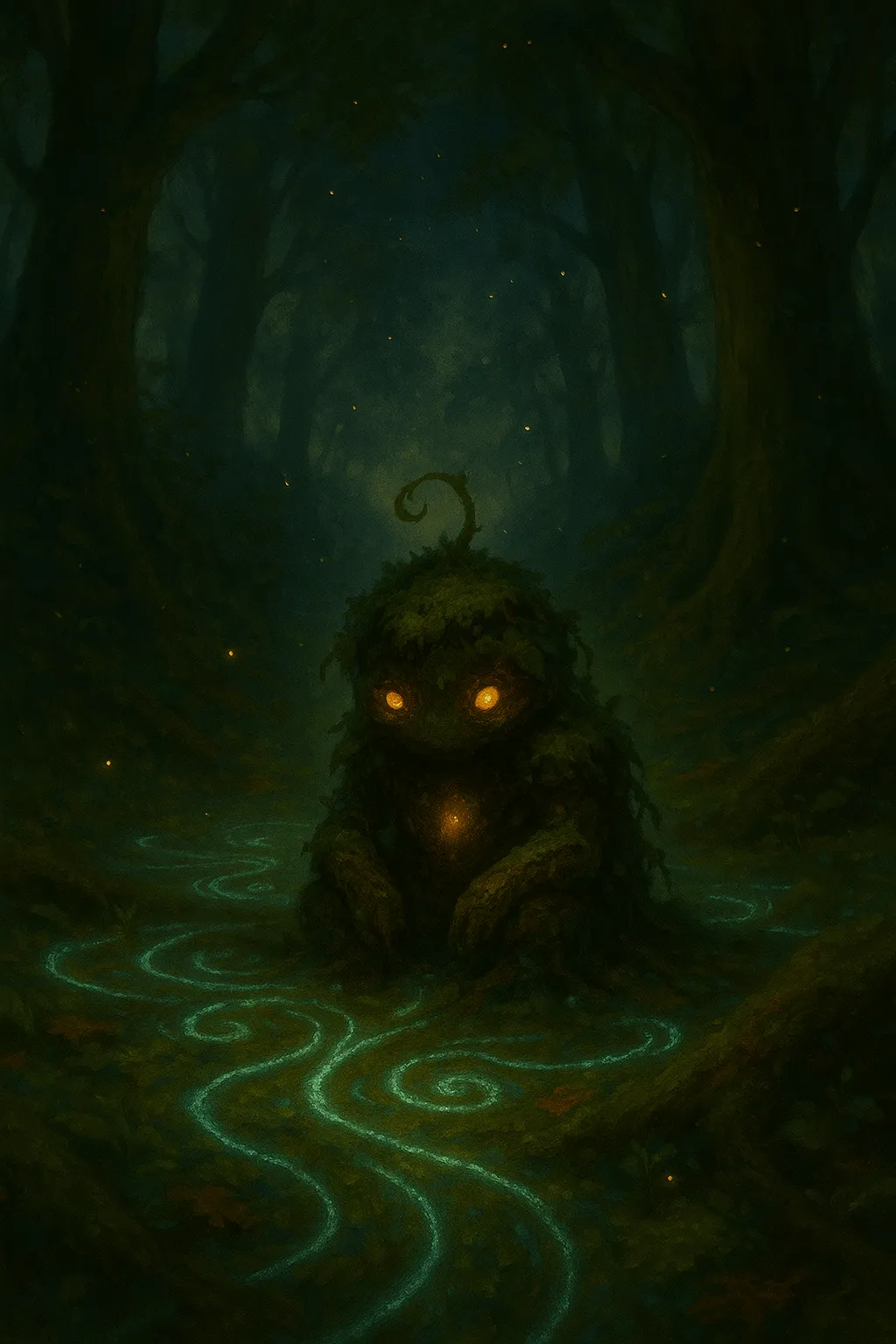 These creatures are most commonly found in deep woodlands, near the confluence of old paths and buried ley lines—places where magic has seeped into the ground so long that the soil itself has begun to listen. Unlike stonebound elementals formed by geomantic convergence, Peek Soil emerges where the living and the earthen blur—coalescing not from command, but from long dormancy and slow attention. It does not require summoning. It simply is.
These creatures are most commonly found in deep woodlands, near the confluence of old paths and buried ley lines—places where magic has seeped into the ground so long that the soil itself has begun to listen. Unlike stonebound elementals formed by geomantic convergence, Peek Soil emerges where the living and the earthen blur—coalescing not from command, but from long dormancy and slow attention. It does not require summoning. It simply is.
In temperament, Peek Soil is patient and unintrusive. It observes more than it acts, often remaining still for days at a time beneath layers of mulch and shadow. When it does move, it does so with care, disturbing as little as possible. It is drawn to vibration and warmth, not aggressively, but curiously. Travelers near its resting grounds may find themselves accompanied by the subtle sound of shifting mulch behind them, or spot amber eyes low to the ground, half-hidden beneath a fallen log. Some report the sense of being watched, but not threatened.
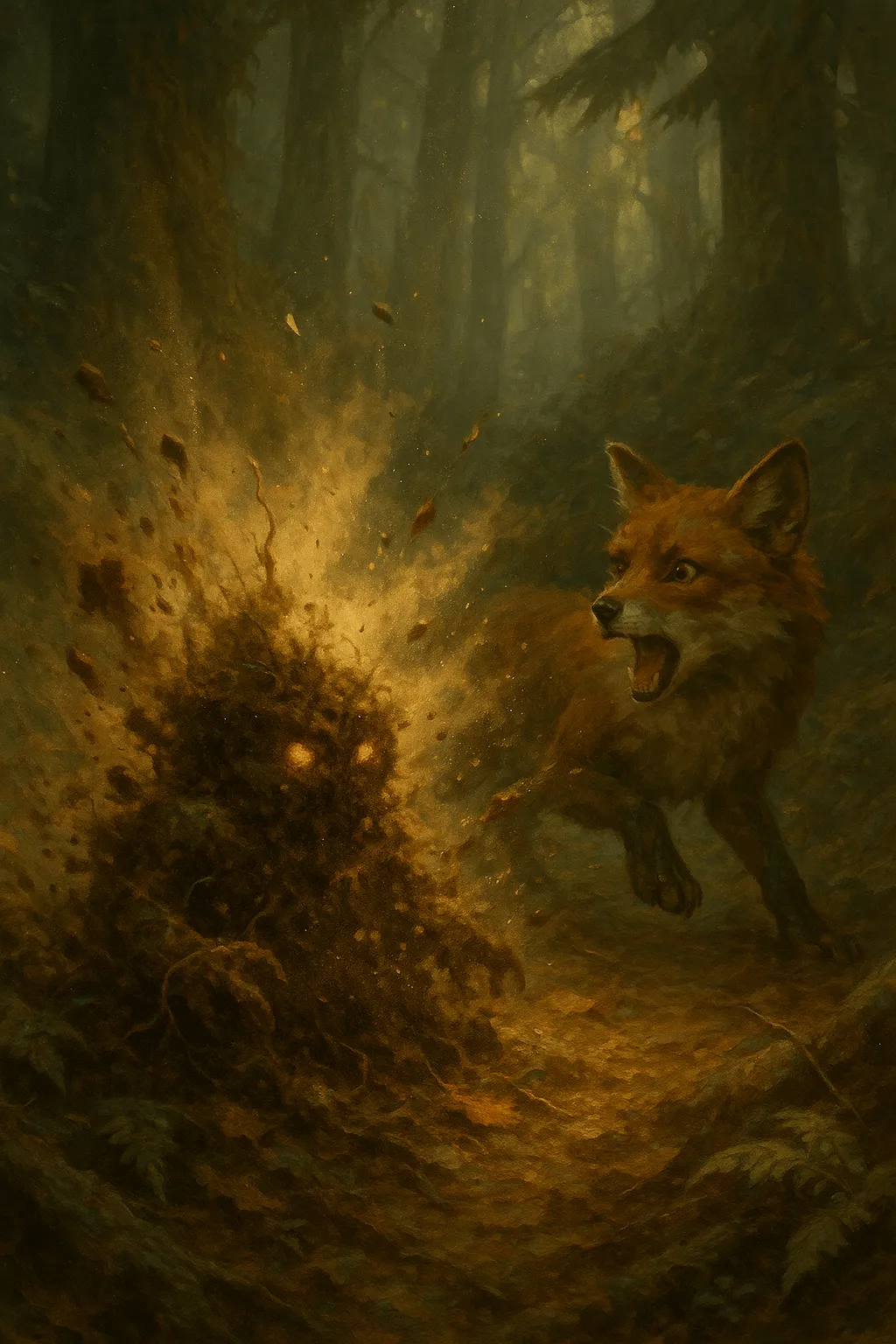 Magically, Peek Soil is sensitive rather than powerful. It reacts to fluctuations in nearby enchantments, to the weight of footsteps, and to changes in air pressure that signal storms or intrusion. In forested regions with active druids or earthspeakers, it may serve as a passive sentinel—though not by oath or pact, but by presence alone. A wise geomancer does not command Peek Soil. They acknowledge it, leave an offering of compost or warmth, and hope it lingers.
Magically, Peek Soil is sensitive rather than powerful. It reacts to fluctuations in nearby enchantments, to the weight of footsteps, and to changes in air pressure that signal storms or intrusion. In forested regions with active druids or earthspeakers, it may serve as a passive sentinel—though not by oath or pact, but by presence alone. A wise geomancer does not command Peek Soil. They acknowledge it, leave an offering of compost or warmth, and hope it lingers.
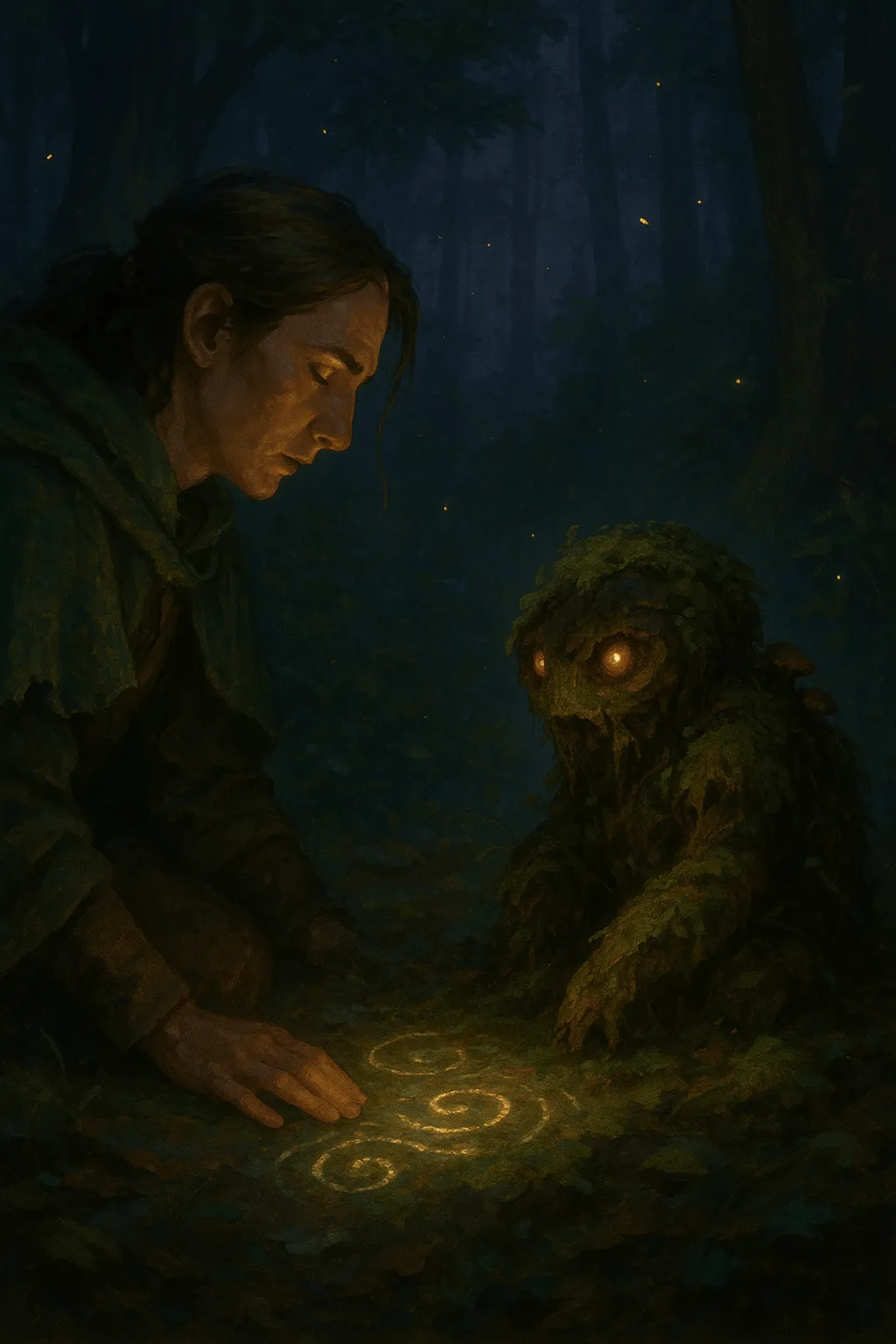 Its defensive mechanisms are modest. When startled, it may collapse into its component soil, vanishing into the underbrush in moments. If cornered, it can release a blinding puff of spore-laced dust or rapidly sprout thorned roots from its outer shell. These are delay tactics, not weapons. The creature's instinct is always to hide, scatter, observe, and eventually return.
Its defensive mechanisms are modest. When startled, it may collapse into its component soil, vanishing into the underbrush in moments. If cornered, it can release a blinding puff of spore-laced dust or rapidly sprout thorned roots from its outer shell. These are delay tactics, not weapons. The creature's instinct is always to hide, scatter, observe, and eventually return.
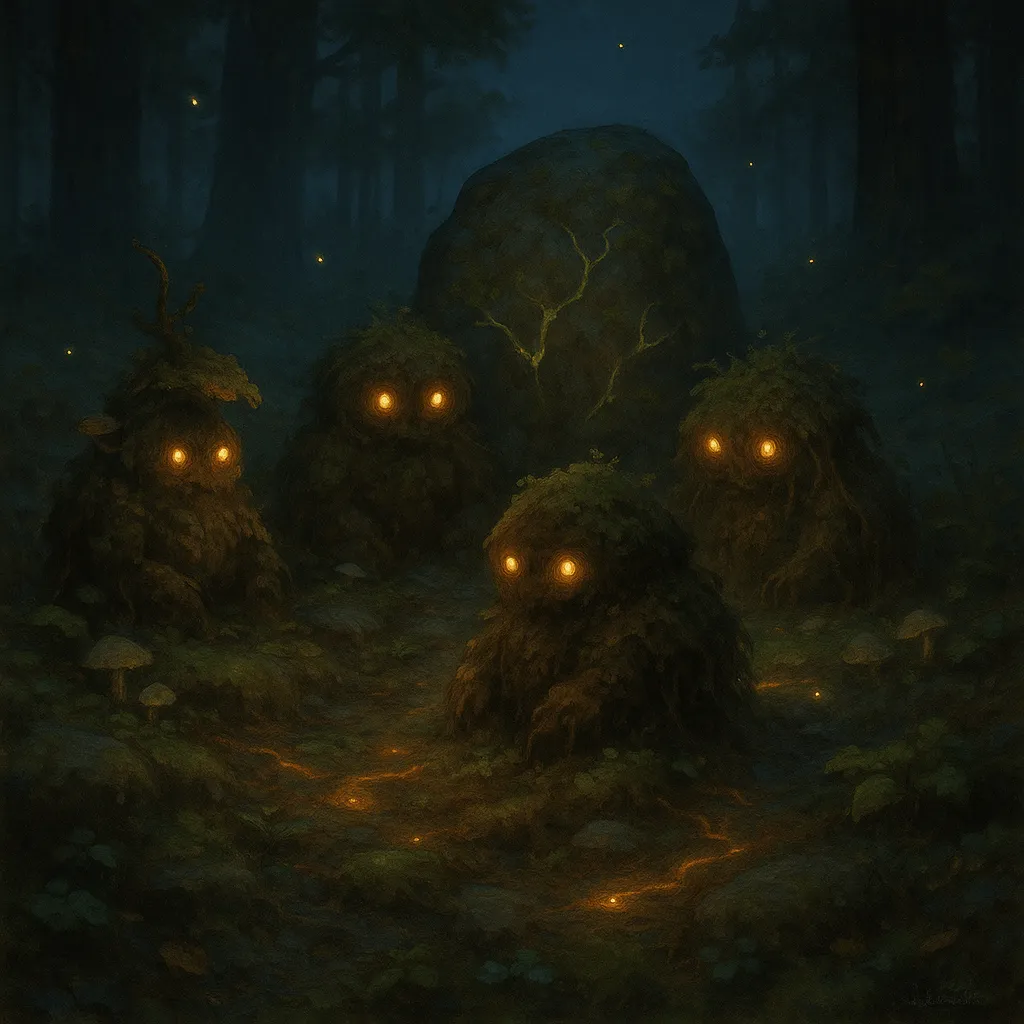 Scholars debate whether Peek Soil is a singular being, a scattered species, or even a phenomenon rather than a creature. Some accounts suggest multiple sightings across different forests—each one subtly distinct, as though grown from local conditions. Others claim that Peek Soil is an extension of the land itself, an ambient memory granted momentary form. In either case, it is not considered dangerous.
Scholars debate whether Peek Soil is a singular being, a scattered species, or even a phenomenon rather than a creature. Some accounts suggest multiple sightings across different forests—each one subtly distinct, as though grown from local conditions. Others claim that Peek Soil is an extension of the land itself, an ambient memory granted momentary form. In either case, it is not considered dangerous.
To see one is rare. To be followed by one, rarer still. In certain reclusive traditions, such an encounter is viewed as a quiet omen—neither good nor ill, but important. A reminder that the land pays attention. That the earth has eyes, even in its stillness. And that not every living thing seeks to be known.
The following magical heirlooms are fictional and lore-based in nature. Each one is an affiliate link to a real-world item on Amazon that we've hand-selected to complement this artifact's lore.

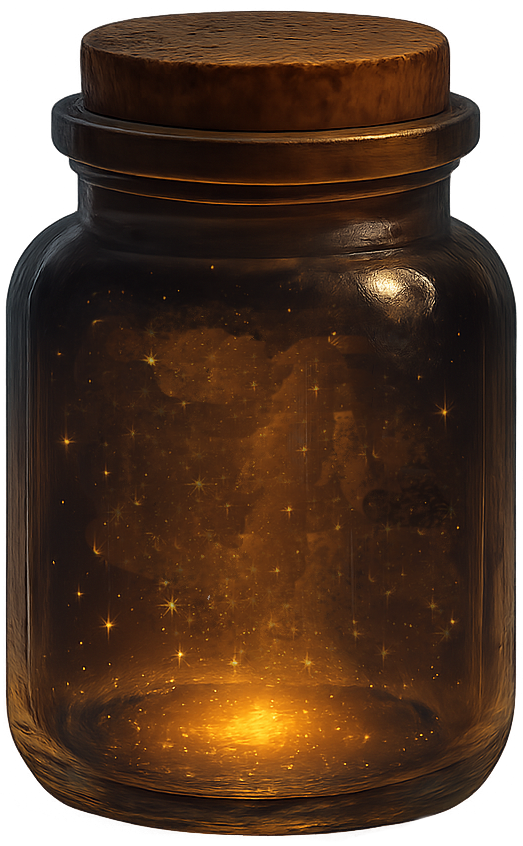
If you click a link and buy an item, we may earn a commission.It costs you nothing extra, but can help keep this little corner of the internet glowing.
What does this mean?
Sharp enough to fell any tree, wise enough to ask which ones.
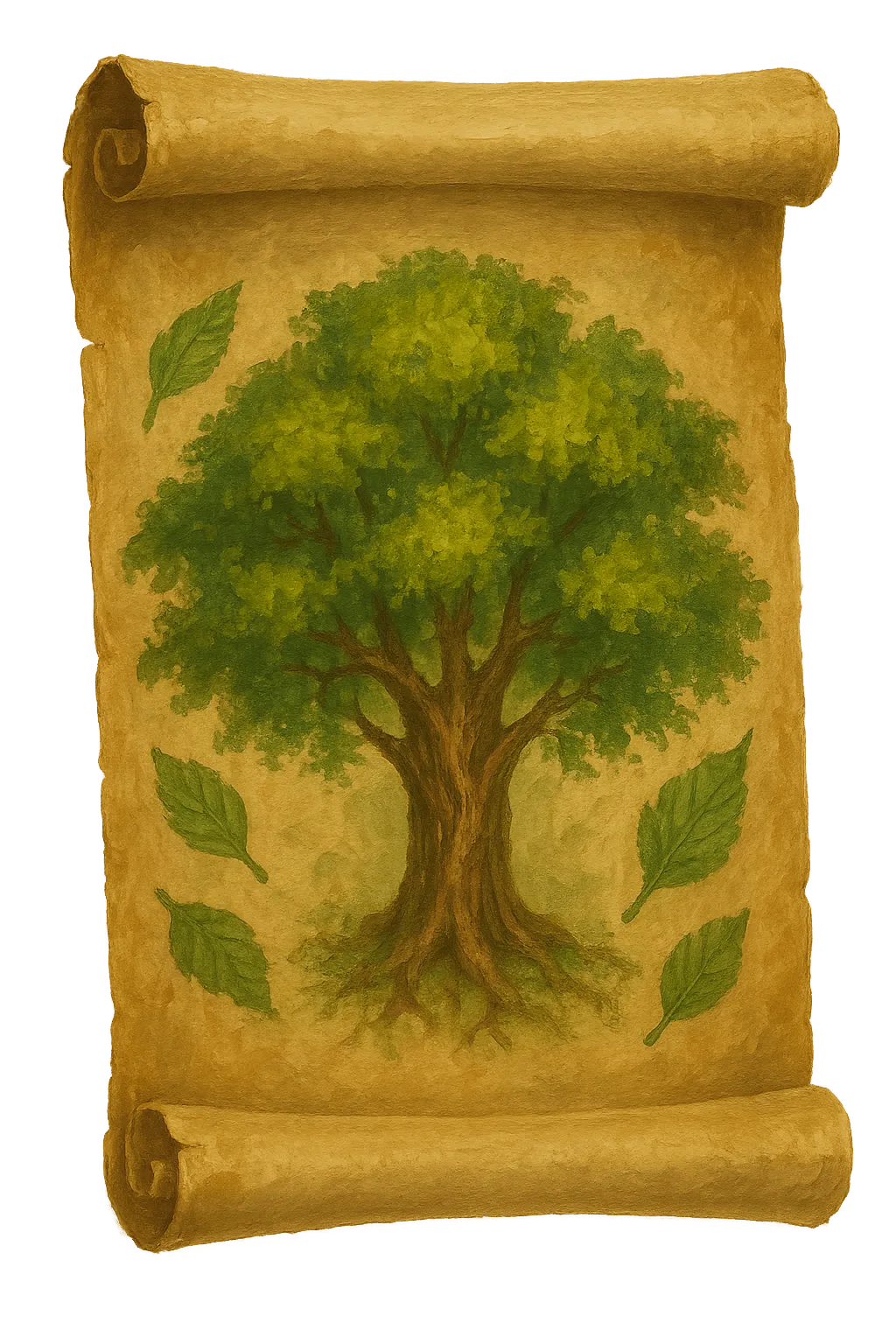
Summons 3 small saplings. They're not particularly ferocious, but they are cute and distracting.
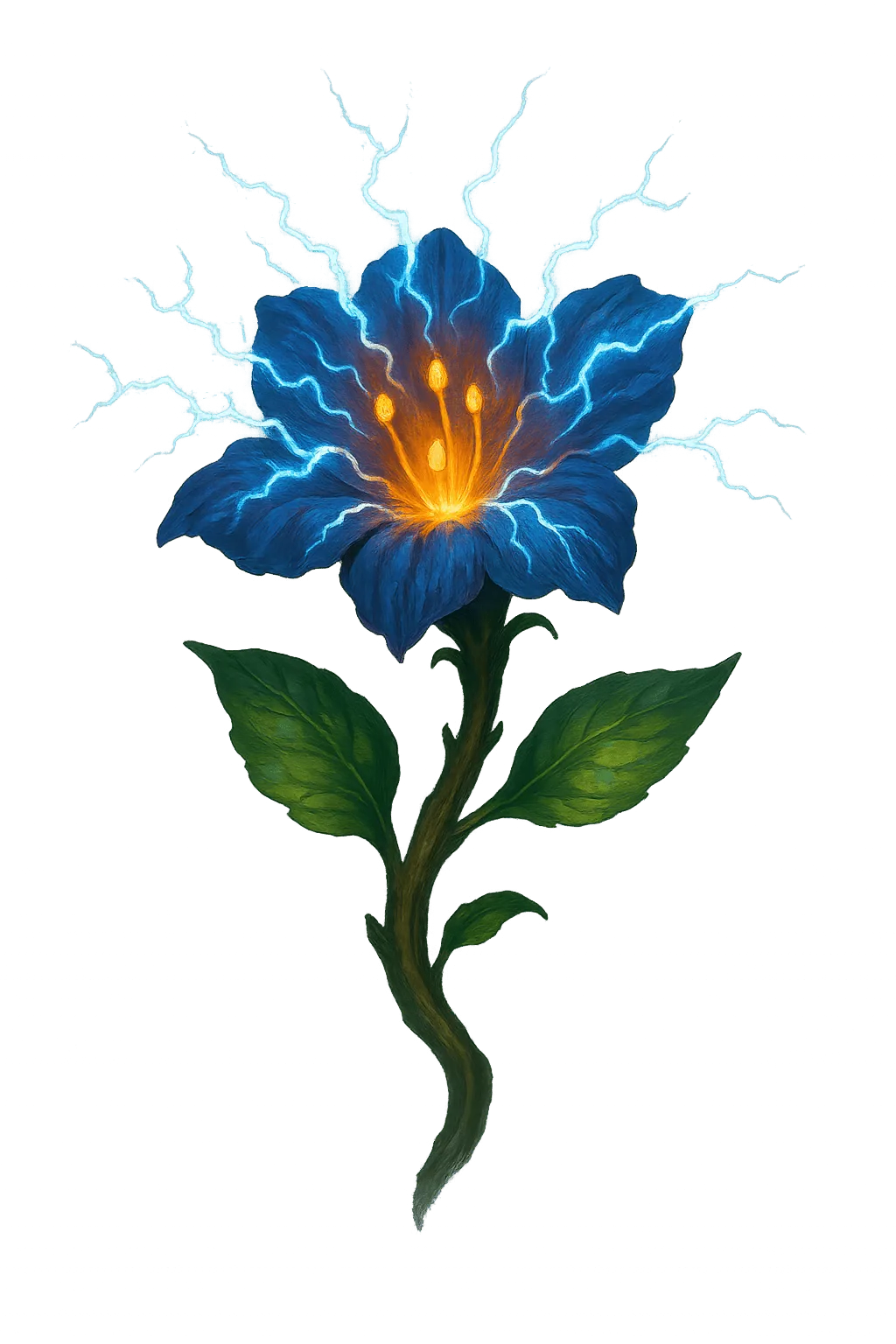
Water at own risk. Banned in three kingdoms. Pollinates itself out of spite.
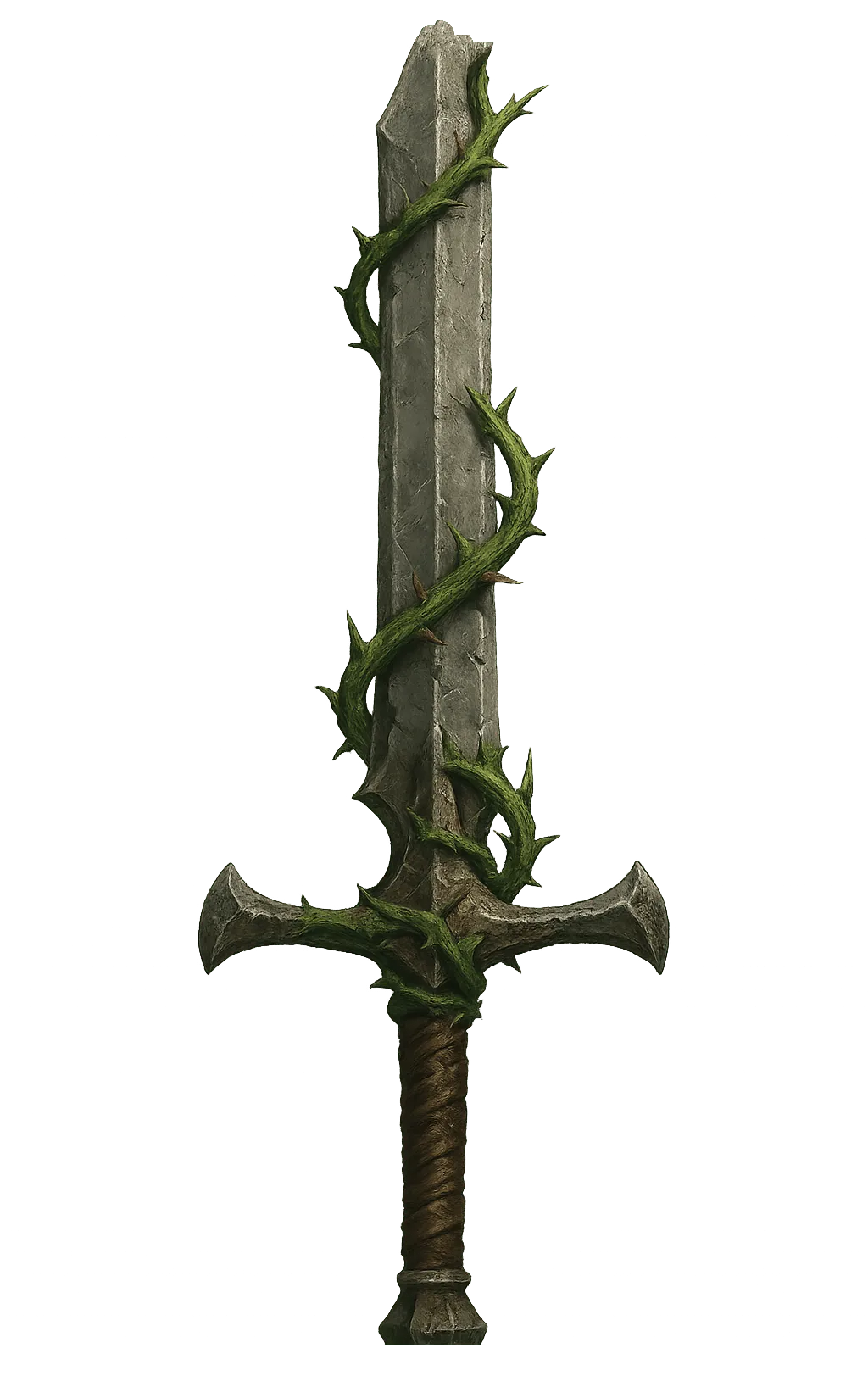
Favored armament of many keepers of the grove for centuries, to defend from any who would threaten the balance.




